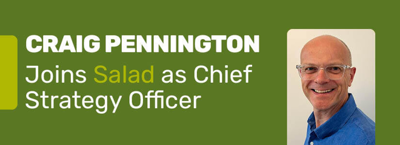
Times are extremely tough at the moment. Possibly the toughest they’ve ever been in your lifetime – hopefully the toughest you’ll ever go through.
As a result, it’s more than understandable if you can’t always disconnect from work when you want to relax at home. It can be very common for NHS employees to struggle to free themselves from their work in this way.
This is why it’s very important to take stock of your mental health, to make sure you manage it carefully and compassionately.
What is work-related stress?
Work-related stress can be defined as a pattern of emotional, cognitive, behavioural and physiological reactions to difficult aspects of your work. If stress is excessive and goes on for some time, it can lead to mental and physical ill-health
Often categorised by feelings of not coping, work-induced stress is now acknowledged as a notable problem within the health sector. And it’s more common than you might think. Around 30% of sickness absence in the NHS is due to stress, whether that’s for financial reasons, your work, or any other reason.
How to help yourself switch off from work
There are lots of great ways to switch off from work. This can be having a hobby, meeting with friends, spending time with your family, or just by simply avoiding work-related conversation topics.
But sometimes, it can be quite difficult to distract ourselves from some of the more significant work-related issues in our minds. Additionally, lockdown measures make it even harder for us to socialise with our loved ones.
This is why online help can be really helpful in safeguarding your mental health.
Mindfulness apps you can get for free as NHS employees
A great deal of work-related stress is quite likely to be preventable. As a result, NHS organisations have legal obligations to help prevent or reduce stress.
As it stands, there are now a number of free mindfulness apps available for NHS staff to download.
These apps can teach you meditation, help improve your quality of sleep, or just teach you how to compartmentalise work-related issues.
Have a read below of the options and hopefully you’ll find something that’s right for you.
Liberate
Curated by members of the Black and Minority Ethnic community – and designed to be a safe space for this community – Liberate offers culturally sensitive and diverse meditations. With the key focus on helping you get a good night of sleep, the app seeks to reduce anxiety and stress in its users.
NHS staff can access the app for free until December 31st 2020.
How to sign up:
Go to Liberate
Create an account using an NHS email address
Download the Liberate app from the App Store or Google Play.
Headspace
One of the most popular apps on meditation and mindfulness, Headspace provides resources to help reduce stress, build resilience, and aid better sleep. Using it for just a couple of minutes a day can be beneficial, and that’s all you need to do, to begin with.
It’s available free for all NHS staff up until the 31st of December 2020.
How to sign up:
Go to the Headspace NHS page and select clinical or non-clinical staff to start enrolling.
You will need to use your NHS email address to sign up.
Access Headspace FAQs and Support for more information.
Unmind
Specifically set up as a workplace mental health platform, this app seeks to empower its users to proactively improve their mental wellbeing. It offers tools and training which allow you to both measure and manage the progress of your mental health.
Again, free access to NHS staff until the end of December 2020.
How to sign up:
Follow this link to the UnMind setup page.
Enter your NHS email address.
Download the Unmind app from the App Store or Google Play – your organisation name is NHS.
If you need help, please visit the FAQs and support for more information.
Sleepio
The clue is in the title, as Sleepio uses cognitive behavioural techniques to help improve poor sleep. This fully automated and highly personalised app is free to access until December 31 2020.
How to sign up:
Go to the Sleepio NHS page on your laptop or desktop computer.
Sign up for an account using your name and email address.
Click ‘Personalise Sleepio’ and get going!
Daylight
Daylight is an app which is best used for people who may struggle with feelings of worry and anxiety. It uses evidence-based cognitive behavioural techniques, voice, and animation to aid its users.
Free access until 31 December 2020.
How to sign up:
Follow the link to the Daylight NHS page.
Answer a few short questions.
Sign up for an account using your name and email address.
Download the Daylight smartphone app (search ‘Daylight – Worry Less’ on both iPhone and Android).
Why it's so important to look after your mental health
Issues relating to mental health are said to affect one in four people across the course of their lives. Yet, according to the NHS, only 30% of those people access support, with the majority going completely untreated.
The effects of mental health can be suffered on a wide spectrum, and the way we experience it can often change from day to day. This is why it’s really important to be mindful of our own mental wellbeing and make sure we do what we can to stop it from deteriorating.
Working in the health sector – especially during the middle of a pandemic – can be one of the most stress-inducing jobs a person can undertake. In some cases, stress can lead to common illnesses such as colds and coughs, or it can cause headaches, muscle tension and pain, as well as insomnia and fatigue.
If you fail to properly acknowledge your mental wellbeing, stress can become a prominent factor in both your private and professional life. It can lead to a sense of despair and lack of control.
But having a better hold on your own mental health can lead to an improved sense of worth and greater self-esteem. This can allow you to make sure you are being valued and treated fairly in all walks of life – including the workplace.
The apps listed above will not necessarily cure any mental health issues but they can help alleviate stress and make some difficulties seem more manageable.
Of course, money is one of the main factors behind stress in all walks of life. At Salad Money we want to put a stop to toxic high-risk loans, and offer fair affordable lending for NHS employees.
We provide small, affordable loans to meet people’s urgent needs now, and free financial education to help them make good decisions in the future.
If financial issues are impacting your mental health then please get in contact soon.



